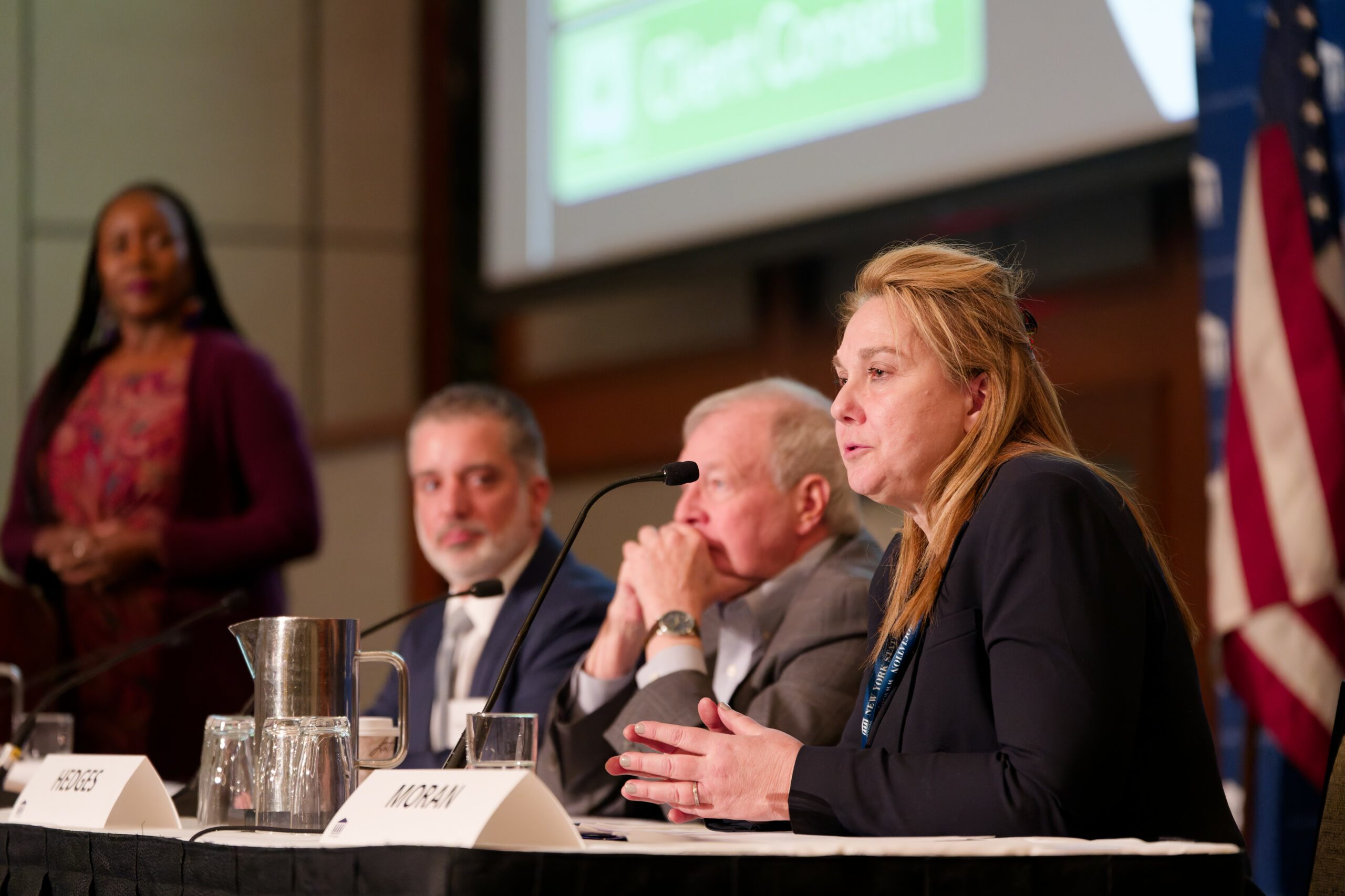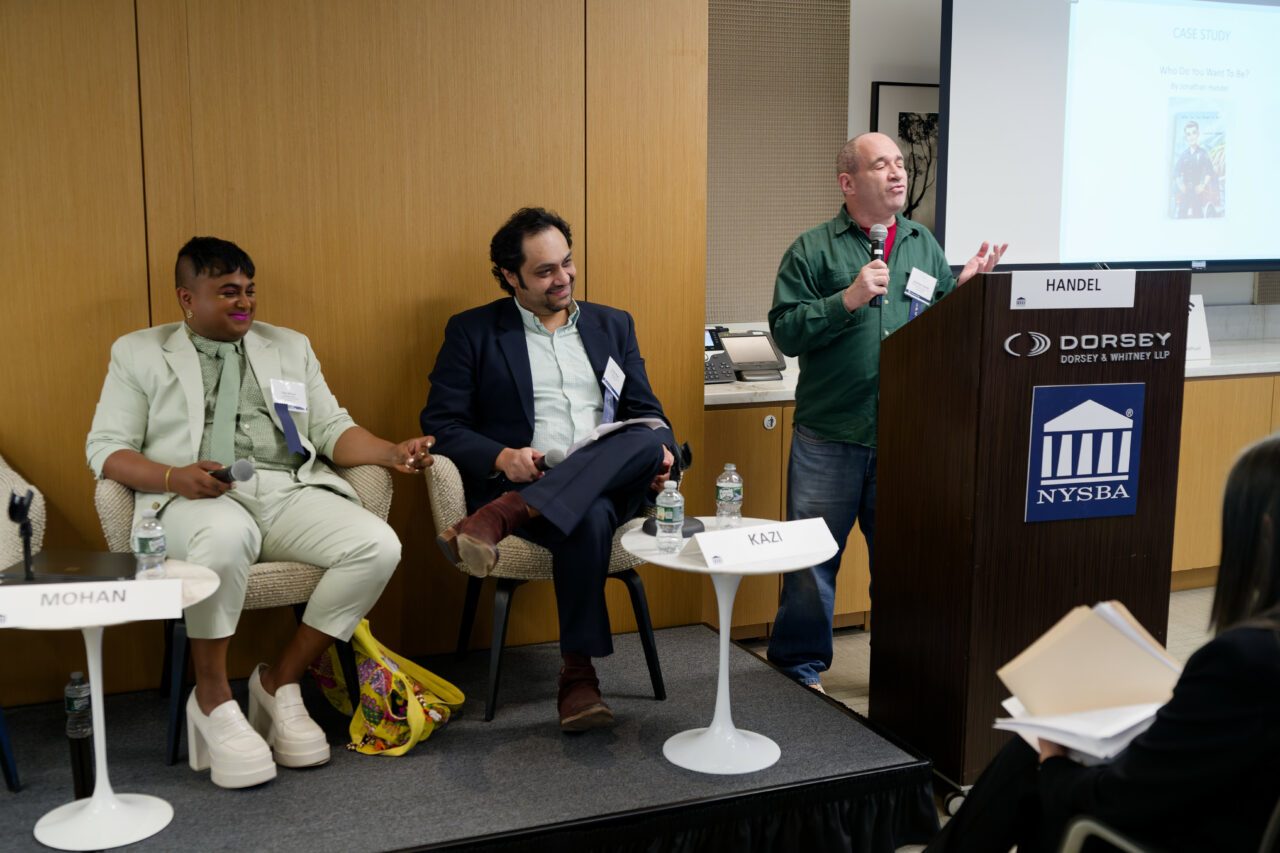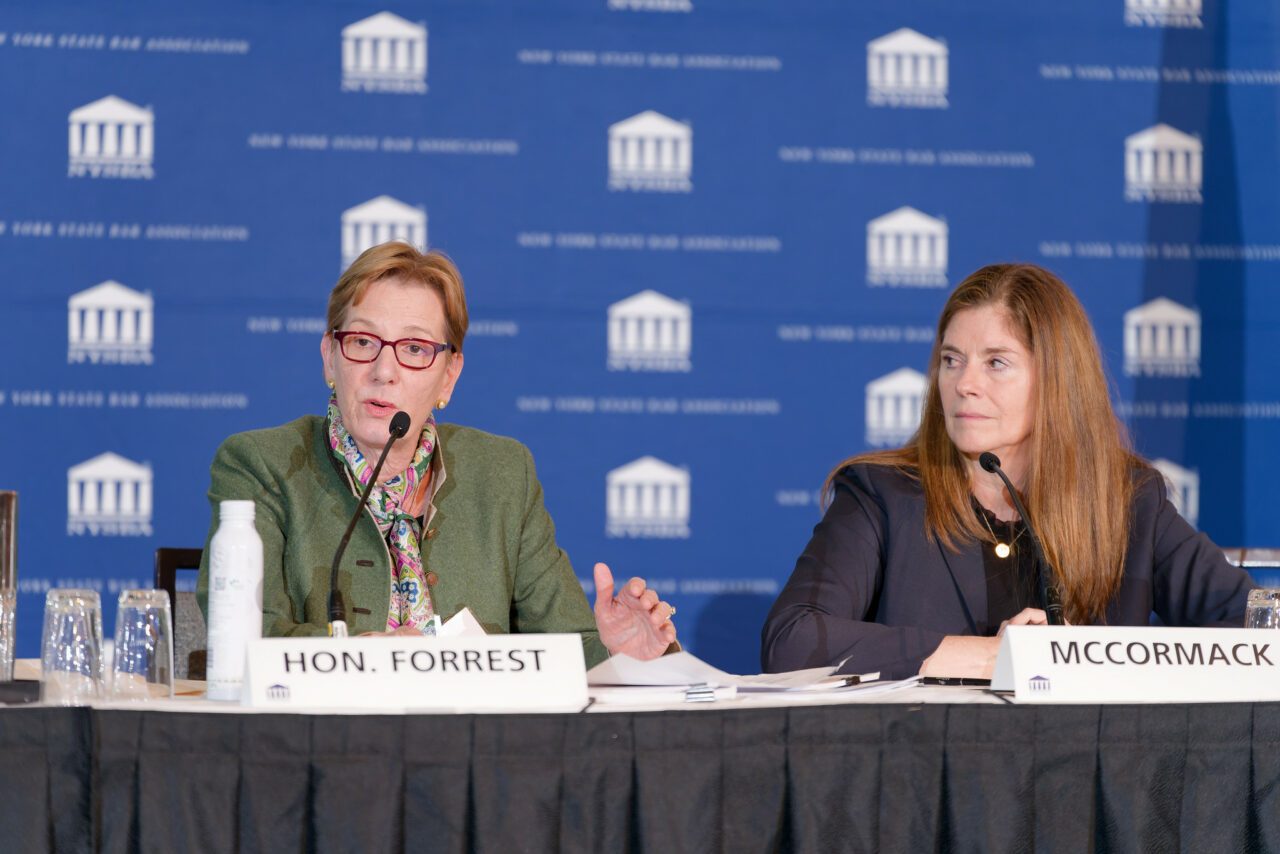Protecting Client Confidentiality Remains Paramount at the Outset of the AI Era
1.18.2024

(Left to Right): Vivian D. Wesson, Ignatius Grande, Ronald Hedges and Marissa Moran
Artificial Intelligence’s pervasive impact on lawyers will initially be felt most profoundly in practical areas including document drafting and repetitive tasks that are data driven.
A panel of experts who spoke during the second part of the Presidential Summit, the marquee event of the New York State Bar Association’s 147th Annual Meeting, discussed the practical benefits of AI while warning potential users that the technology does not eliminate the need for fact verification and client confidentiality.
The summit, entitled “AI and the Legal Landscape: Navigating the Ethical, Regulatory and Practical Challenges,” focused on harnessing the technology that is transforming the practice of law and bringing ethical and regulatory challenges to the forefront of its deployment.
Vivian D. Wesson, executive vice president, corporate secretary, and general counsel for the Board of Pensions of the Presbyterian Church (U.S.A.) and chair of the NYSBA Task Force on AI, moderated the 90-minute conversation.
The panelists included:
- Ignatius Grande, director at Berkeley Research Group, a member of the association’s Task Force on AI, and immediate past chair of its Commercial and Federal Litigation Section.
- Marissa Moran, professor in the law and paralegal studies department at New York City College of Technology, CUNY.
- Ronald Hedges, principal of Ronald J. Hedges and also a member of the NYSBA Task Force on AI.
“I think that everyone can envision a scenario where an associate who is behind schedule might want to use ChatGPT to create a draft of a brief. It is important that firms provide them guidance on how these tools can and cannot be used,” said Grande. “As attorneys, one of the things that we have to worry about most is the confidentiality of our clients’ data so having a policy that helps you regulate the use of generative AI is really important. I don’t want to discourage or dissuade anyone from using this new technology, but it is important to understand how the tools work.”
Unreasonable client expectations of the technology’s capabilities and AI manufacturers’ service agreements may also raise risk levels. Some companies’ privacy policies may contain clauses that allow them to use their input data for training purposes, which expose their clients’ information to third parties.
There was also some debate on AI’s well-documented potential to narrow the justice gap.
“I understand that a lot of people say generative AI and AI are going to improve access to justice. I’m not sure, at least in the short run. Everything we are now talking about is going to require experts, experts to inform you, experts to advise you and experts perhaps to do a lot of things to aid in discovery,” said Hedges. “I’m also not suggesting it’s good or bad to have platforms to suggest what pro se litigants should do, but it is something we are going to be confronting in the next few years.”
Moran said that is imperative for attorneys to be mindful of their ethical duties surrounding AI and reinforced Grande’s assertion of the need for them to understand the technology before attempting to use it.
“Like any technology that we use, we need to understand its benefits as well as its limitations in order to utilize it in an ethical manner to improve our decision making as well as to enhance our practice,” said Moran.
The event was sponsored by ALM and Anytime A.I.






